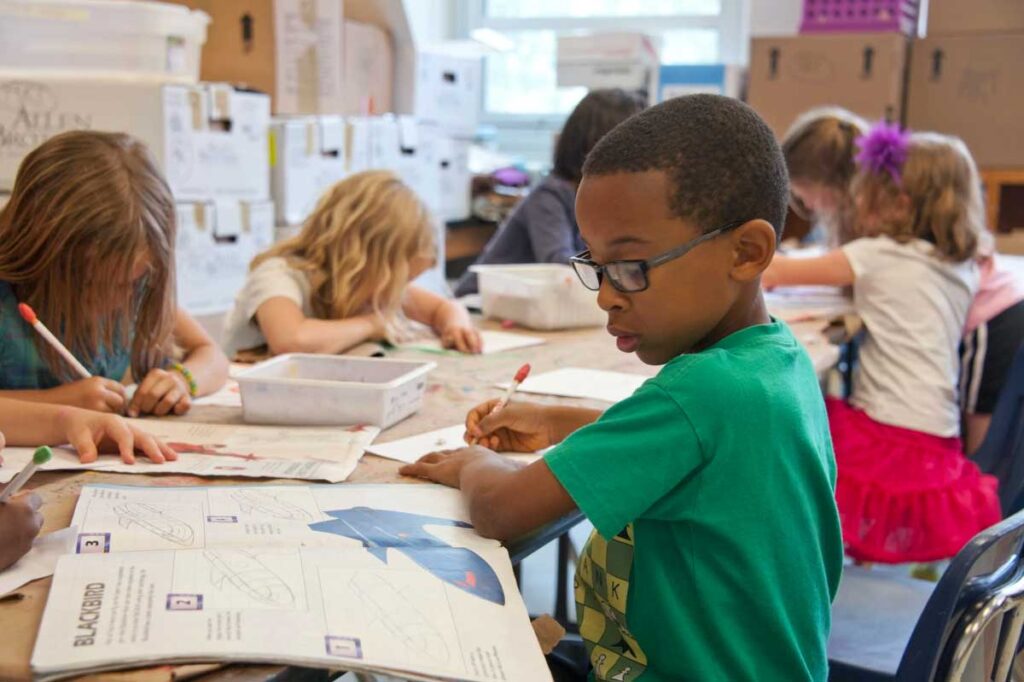The transition to school is a monumental step in a child’s life, signifying the start of an exciting journey of learning, growth, and friendships. As parents, balancing excitement and anxiety is natural, but thorough preparation can make this transition smoother. This checklist is designed to help you get your child ready for their big day, ensuring they step into their new world with confidence and ease.

Emotional Preparation
The emotional readiness of your child is just as important as the physical preparations. Begin by having conversations about school, focusing on what to expect, the activities they’ll participate in, and the new friendships they’ll form. This helps in building a positive outlook towards school. Additionally, reading books about school experiences can be incredibly beneficial. These stories can provide a relatable context for your child, helping to ease any fears or anxieties about the new environment. Encouraging independence is another crucial aspect. Skills like tying shoelaces, using the bathroom independently, and washing hands are not only practical but also boost their confidence in managing small tasks on their own.
Academic Readiness
Fostering academic readiness in young children is a delicate balance of introducing them to basic educational concepts and nurturing a positive attitude towards learning. This doesn’t necessarily mean formal teaching at home; rather, it’s about making learning a fun and engaging part of everyday life. For instance, you can incorporate learning the alphabet or numbers into playtime, or use storybooks to introduce colors and shapes. These activities can help familiarize your child with basic academic skills without the pressure of a structured classroom setting. Moreover, it’s beneficial to cultivate their curiosity by asking questions about the world around them and encouraging exploration. This type of learning environment not only prepares them for the academic aspects of school but also instills a love of learning, which is crucial for long-term educational success.
Social Skills
Social skills are integral to a child’s school experience, influencing their ability to interact with peers and teachers. Begin by teaching them the value of sharing and cooperation. Simple games at home can be used to illustrate the importance of taking turns and playing fair. Encourage them to express their feelings and needs in a respectful and appropriate manner, as this will be crucial in their interactions at school. Additionally, role-playing can be an effective tool in preparing your child for various social situations they might encounter. For instance, you can simulate a classroom setting or a playground scenario, guiding them on how to navigate these environments. Instilling these skills early on not only helps in smoothing their transition into school life but also lays the foundation for healthy social relationships in the future.
Health and Safety
Health and safety are paramount when preparing your child for school. It’s essential to ensure that they are physically ready to meet the demands of a school day. This includes being up-to-date with vaccinations and having a recent health check-up to address any concerns before school starts. In terms of safety, it’s crucial to teach them about personal hygiene, especially in the context of ongoing global health concerns. Simple practices like regular hand washing can be instrumental in preventing the spread of germs. Additionally, discussing safety rules is vital. Teach them about the importance of staying within school boundaries, the significance of not talking to strangers, and understanding who to turn to if they need help.
Keep Track For Safety
In today’s digital age, technology makes staying connected and ensuring your child’s safety easier. You can even try to discover mobile number locator apps – these tools allow you to keep track of your child’s location, offering peace of mind when they are away from home. Such apps can be a valuable addition to your safety plan, ensuring you’re always just a click away from knowing your child’s whereabouts.
School Supplies and Clothing
Prepare a list of required school supplies and involve your child in the shopping process. This can make them feel excited and part of the preparation. Choose comfortable, practical clothing and shoes, and label all their belongings to avoid mix-ups. Organizing their school bag with them the night before can help in easing morning stress.
Establishing Routines
A consistent routine is essential for a smooth school experience. Establish a bedtime routine to ensure your child gets enough sleep and is fresh for school. Similarly, a morning routine that allows ample time for getting ready, having breakfast, and traveling to school can help in starting the day on a positive note.
The First Day
On the first day, accompany your child to school if possible. Meet the teacher, tour the classroom, and reassure your child that you will be back to pick them up. A comforting goodbye ritual can help ease any separation anxiety.
Conclusion
Preparing for the first day of school involves a blend of emotional, academic, and practical readiness. By following this checklist, you can ensure that your child is well-prepared and excited about this new chapter in their life. Remember, your attitude towards school can greatly influence your child’s perception, so maintain a positive and encouraging outlook. Here’s to a successful and enjoyable first day of school!








